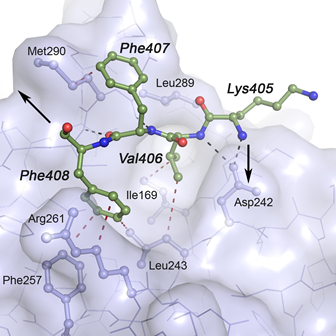Services

The facility has been established as a respond to an increased awareness of structural biology and need for experimental protein structure determination within the biomedical research. These activities are highly specialized and require dedicated personnel and equipment only available at Oslo University Hospital within the Helse Sør-Øst RHF. The facility and equipment is located at the Department for Medical Biochemistry (MBK) at the Oslo University Hospital (Rikshospitalet, B1, 3rd floor), and includes the following experimental technologies:
Protein expression. We can assist with advice and practical help with recombinant production of challenging proteins. Facilities for large-scale protein production in E. coli is availible.
Protein purification. We have access to a BioRad NGC system with a broad range of columns for large and small scale protein purification. We can also produce and purify proteins for users.
Robot for high-throughput crystal screening and plate imaging/hotel. Our Mosquito crystallization robot incorporates small-volume, high-density drop plate configurations, which enables hundreds of crystallization experiments to be dispensed with a minimal sample amount. We have access to > 1000 different conditions for screening. Plates might be monitored in our crystal plate hotel.
X-ray diffraction at ESRF and MAXIV synchrotrons. We have regular access to two of the best X-ray sources in the world - the ESRF in Grenoble and MaxIV in Lund. We can prepare, bring and test crystals for customers. We can collect data sets for well diffraction samples, and assist with data processing, phasing, structure solution and modeling.
Surface plasmon resonance (SPR). We have a Biacore S200 state-of-the art SPR instrument for measurment of binding kinetics and affininty of protein-protein and protein-ligand interactions. SPR will normally require our staff assistance, unless for experienced users.
Microscale Thermophoresis (MST). We can provide service to qantitatively analyse protein-ligand interactions by MST. We have both a Monolith NT.LabelFree system and a NT.115 system for labelled proteins (red and blue dyes). Low volume, fast and low-threshold for new users. Gives KD affinity for complexes.
Isothermal Titration Calorimetry (iTC200). We can provide service to qantitatively analyse protein-ligand and protein-protein complexes by ITC. Large volumes and amounts of protein are required. Gives thermodynamic data for complex formation.
Protein stability (nanoDSF). We can determine protein thermal stability, chemical stability, buffer stability, ligand binding and aggregation using low-volume scale differential scanning fluorimetry. The instrument can also be used to compare thermal and chemical stability of protein variants, protein quality between batches and storage conditions. Low volume, fast and low-threshold for new users.
Dynamic light scattering (DLS). With our Zetasizer Nano DLS from Malvern, we can analyse the dispersity of protein solutions and monitor conditions to avoid protein aggregation/ denaturation.
The structural modeling and bioinformatics services focus on
Structure-activity analysis. We can analyse structures of proteins and relate protein stability/activity with clinical data, SNPs analyses, mutagenesis data etc in order to rationalize structure-function relationships (SAR analysis). Further identify potential active site residues, and suggest truncations for improved protein expression and stability.
